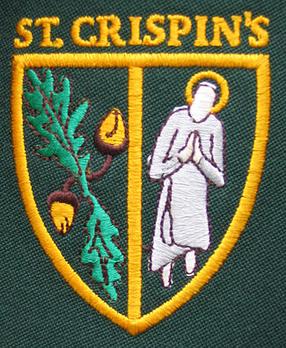The Blekinge Institute of Technology is a public, state funded Swedish institute of technology in Blekinge with 5,900 students and offers about 30 educational programmes in 11 departments at two campuses located in Karlskrona and Karlshamn.

Information and communications technology (ICT) is an extensional term for information technology (IT) that stresses the role of unified communications and the integration of telecommunications and computers, as well as necessary enterprise software, middleware, storage and audiovisual, that enable users to access, store, transmit, understand and manipulate information.
E-procurement is a collective term used to refer to a range of technologies which can be used to automate the internal and external processes associated with procurement, strategic sourcing and purchasing.

Technology education is the study of technology, in which students "learn about the processes and knowledge related to technology". As a field of study, it covers the human's ability to shape and change the physical world to meet needs, by manipulating materials and tools with techniques. It addresses the disconnect between wide usage and the lack of knowledge about technical components of technologies used and how to fix them. This emergent discipline seeks to contribute to the learners' overall scientific and technological literacy, and technacy.
Educational technology is the combined use of computer hardware, software, and educational theory and practice to facilitate learning. When referred to with its abbreviation, "EdTech", it often refers to the industry of companies that create educational technology. In EdTech Inc.: Selling, Automating and Globalizing Higher Education in the Digital Age, Tanner Mirrlees and Shahid Alvi (2019) argue "EdTech is no exception to industry ownership and market rules" and "define the EdTech industries as all the privately owned companies currently involved in the financing, production and distribution of commercial hardware, software, cultural goods, services and platforms for the educational market with the goal of turning a profit. Many of these companies are US-based and rapidly expanding into educational markets across North America, and increasingly growing all over the world."
The National Grid for Learning (NGfL) was a UK government-funded gateway to educational resources on the Internet. It provided a curated collection of links to resources and materials of high quality. The NGfL was established to support schools in England, while separate grids were created for schools in Northern Ireland, Scotland, and Wales.

Education in South Africa is governed by two national departments, namely the Department of Basic Education (DBE), which is responsible for primary and secondary schools, and the Department of Higher Education and Training (DHET), which is responsible for tertiary education and vocational training. Prior to 2009, both departments were represented in a single Department of Education. Among sub-Saharan African countries, South Africa has one of the highest literacy rates. According to The World Factbook - Central Intelligence Agency as of 2019, 95% of the population aged from 15 and over can read and write in South Africa were respectively literate.

The London Grid for Learning commonly referred to as LGfL is a British not for profit technology company with headquarters in central London. The charity founded in 2001 procures, develops and delivers technology and educational content including broadband connections, filtering and safeguarding services, devices and software and licences. LGfL started in London but is now a nationwide organisation winning multiple awards such as ERA Education Supplier of the Year.
The Self-review Framework is an online tool that schools in the United Kingdom can use to assess and benchmark their use of technology (ICT). It enables schools to identify where they are and shows the practical steps they can take to improve their use of technology. The Self-review Framework provides a structure for reviewing a school's use of technology and its impact on school improvement. It is designed to support ALL schools. It complements the work schools currently undertake for Ofsted and can be provided as evidence for a school's Self Evaluation Framework (SEF).

St Crispin's School, founded in 1953, is a coeducational comprehensive secondary school and sixth form located in Wokingham, Berkshire, England. There were 1,164 students at the school in 2017, of whom 234 were in the Sixth form. The school is on the London Road, just outside Wokingham town centre.
SIMS is a student information system and school management information system, currently developed by Education Software Solutions. It is the most widely used MIS in UK schools, claiming just over 50% market share across the primary and secondary sectors.

Sirius Corporation ltd is a company based in Weybridge, United Kingdom, which provides a range of open-source software services to medium and enterprise level organisations to allow them to maximise their productivity whilst minimising their risk. Sirius provide network and infrastructure deployment, application development and technical support.

This National Conference is the biennial conference of the Australian Council for Computers in Education (ACCE). The conference opens to anyone who in interested in sharing their digital teaching experiences. The first conference took place in Melbourne, 1983. Between 1983 and 1996, the conference was held annually across Australia. After 1996, the conference became biennial. From 1994, a series of frameworks were launched in Australia to integrate Information and Communication Technology (ICT) into education. Western Australia's 2001 Competency framework for Teachers identified teachers as an important component in developing computer education. In 2010, Education Minister Julia Gillard, proposed an education agenda to provide Australia a better education system. Besides ACCE, there are many organizations and conferences supporting the development of computer education in Australia. Technology in education consists of two major approaches: Learning with technology and learning from technology. Technology in education learning and traditional classroom learning have different focuses and defining features. There are also four types of computer education: Bring your own device(BYOD), blended learning, online learning, and flipped learning.
Bromcom Computers plc is a British technology company, based in Bromley. It provides schools, colleges, local authorities and multi academy trusts with Cloud MIS and Finance software.
Design for All in the context of information and communications technology (ICT) is the conscious and systematic effort to proactively apply principles, methods and tools to promote universal design in computer-related technologies, including Internet-based technologies, thus avoiding the need for a posteriori adaptations, or specialised design.
Information and communication technology (ICT) in Kosovo has experienced a remarkable development since 1999. From being almost non-existent 10 years ago, Kosovar companies in the information technology (IT) domain offer today wide range of ICT services to their customers both local as well as to foreign companies. Kosovo has the youngest population in Europe, with advanced knowledge in ICT.
The National Council for Educational Technology provided advice and support for schools and colleges in England, Wales, and Northern Ireland on educational technology, in particular the use of computers for teaching and learning.
Market Dojo is an e-Procurement software company based in Stonehouse, England. The company was established in 2010 by Nick Drewe, Alun Rafique, and Nic Martin. Alun previously worked at Rolls-Royce before meeting Nick Drewe at Vendigital, whilst Nic Martin came from Attensity. All three co-founders studied at Bristol University. The company's competitors include Ariba, Curtis Fitch, and Scan market amongst others.
Information Communications Technology is usually included in the Home Economics and Livelihood Education program in grade school and taught through the Technology and Home Economics program in high school. The recent status of ICT education in the Philippines, along with other Southeast Asian countries, was surveyed by the Southeast Asian Ministers of Education Organization (SEAMEO) in 2011. Using the UNESCO model of ICT Development in Education, the countries were ranked as Emerging, Applying, Infusing or Transforming. The Philippines were ranked at the Infusing stage of integrating ICT in education, indicating that the country has integrated ICT into existing teaching, learning and administrative practices and policies. This includes components such as a national vision of ICT in education, national ICT plans and policies, complementary national ICT and education policies, professional development for teachers and school leaders, community or partnership and teaching and learning pedagogies. A 2012 study reported that public high schools in Metro Manila had a computer to student ratio of 1:63. While 88 percent of schools have internet connections, half of the students claimed not to be using it.

Educational management refers to the administration of the education system in which a group combines human and material resources to supervise, plan, strategise, and implement structures to execute an education system. Education is the equipping of knowledge, skills, values, beliefs, habits, and attitudes with learning experiences. The education system is an ecosystem of professionals in educational institutions, such as government ministries, unions, statutory boards, agencies, and schools. The education system consists of political heads, principals, teaching staff, non-teaching staff, administrative personnel and other educational professionals working together to enrich and enhance. At all levels of the educational ecosystem, management is required; management involves the planning, organising, implementation, review, evaluation, and integration of an institution. Research in educational management should explore the dynamic interplay among educational leaders, their followers, and the broader community to enhance the quality of teaching and learning outcomes.








